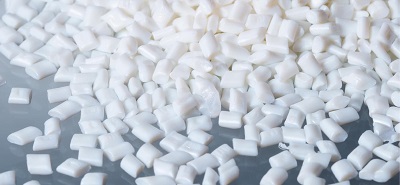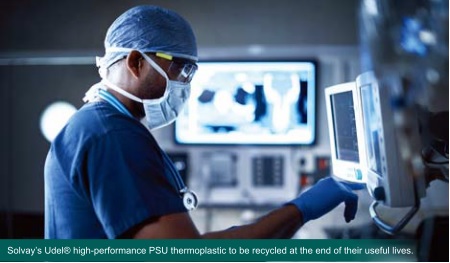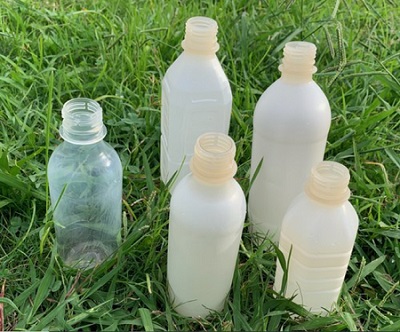Biodegradable plastics have evolved over the years, with new materials providing exceptional advantages aside from meeting environment-protection targets. As research and development projects focusing on biodegradable plastic applications mount, the complexity and distinct benefits of these materials are now being unlocked.
According to the report published by Allied Market Research, the global biodegradable plastics market is estimated to reach US$4.2 billion by 2027, registering a CAGR of 13.3% from 2020 to 2027. The report highlights the market potential, market characteristics, growth by segmentation, and competitive landscape. The major contributor to this growth is the increase in demand for biodegradable plastic in food packaging application, eco-friendly sentiments giving rise to adoption of biodegradable plastic, and favourable government policies towards bioplastics. The period also saw rising demand for biodegradable plastics due to the COVID-19 pandemic that triggered increased needs for face masks, personal protective equipment and other medical disposables, and packaging products. The global plastics industry also needs to face the challenge of creating a circular economy paving the way for reduction in plastic waste, increased recycling and reuse of plastics.
Several innovations have proven how the plastics industry has been devoting resources towards research and development for increased use of biodegradable materials.

Recycling end-of-life medical components
Medical equipment made using Solvay’s Udel® high-performance polysulfone (PSU) thermoplastic will be recycled at the end of their useful lives in a new sustainability initiative that the company has embarked on with Mitsubishi Chemical Advanced Materials (MCAM).
In line with Solvay’s One Planet sustainability roadmap and Mitsubishi’s KAITEKI vision designed to preserve resources and contribute to safer, cleaner and more sustainable products, both companies are currently investigating the implementation of logistics for recovery, recycling, and reprocessing of Udel® PSU medical components, with the aim of recycled material being suitable for reuse in the original applications.
The agreement with MCAM is the latest demonstration of Solvay’s commitment to help customers achieve ambitious sustainability targets, according to Antonella Di Meo, Product Sustainability Manager at Solvay. It is part of Solvay’s long-term commitment to develop sustainable solutions from bio-based or recycled resources. The project aims to demonstrate the possibility of recycling high-value Udel® PSU parts used in the medical field, yielding important savings in CO2 emissions along the production and supply chain.

The project involves using a combination of the expertise developed by MCAM to wash and mechanically purify the material, together with Solvay's ability to evaluate the chemistry of the end-of-life polymer, to develop a robust recycling strategy that will provide customers with materials that fully meet all specifications. MCAM has already partnered with Solvay in reclamation and recycling of other high-performance polymers, including KetaSpire® polyetheretherketone (PEEK). Together with Solvay’s polymer chemistry expertise, MCAM’s mastery of mechanical recycling will help overcome the special challenges customers face to recycle and reuse such polymers in demanding applications in support of the circular economy.
PLA-based 100% nature biomass biodegradable coating material
Environmental problems caused by population explosion such as global warming, natural resource depletion, water shortage and plastic pollution are getting severe in the world. The micro-plastic pollution problem is destroying nature, including the marine environment. Recently, there are some reports that nano-plastic pollution, which is even smaller than micro-plastic pollution, is already in our human body.
Biodegradable plastic is one of the solutions which can mitigate this plastic pollution problem. One of the typical biodegradable plastics is polylactic acid (PLA), a thermoplastic resin normally used as biodegradable plastic. It is not often seen that PLA is dissolved in some kind of liquid (solvent or water) and used as coating, or painting materials. Some solvent can dissolve PLA although those solvents are often toxic and harmful to humans and the environment.

Green Science Alliance Co., Ltd., a Japanese chemical company, has been trying to replace all the petrochemical-based products with nature biomass-derived chemical products. This time, Dr. Ryohei Mori had developed a PLA-based 100% nature biomass biodegradable coating material. Solvent is a relatively environmentally friendly nature derived one and other additives are also nature derived materials. It is a quite rare product because PLA is often used as plastic and this PLA can be coated or painted. Green Science Alliance is also planning to apply colour to make PLA-based colour ink and paint.
The company has also developed a next-generation rechargeable battery, fuel cells, solar cells, as well as CO2 capture and conversion technologies. In 2021, Green Science Alliance announced the development of a 100% biomass-based biodegradable plastic from sargassum, a seaweed in the Caribbean Sea region. The biodegradable resin pellet from sargassum can be moulded into products.
Some of Green Science Alliance technologies are registered by the United Nation Organization (UNIDO's platform "STePP", WIPO GREEN) and they were also selected as start-up company supported by the incubation programme of UNOPS GIC Japan in 2020.
Bio-attributed styrenics enable up to 99% carbon footprint reduction
INEOS Styrolution, has introduced its new NAS® ECO and Luran® ECO sustainable drop-in solutions based on a mass balance process certified by ISCC PLUS. The products are based on styrene being produced using renewable feedstock that is not in competition with food production, such as kitchen waste and wood waste. The carbon footprint reduction for the new products varies between 77% and 99% when compared to the respective fossil-based products, depending on the amount of renewable feedstock used to produce a material.
The new materials, Luran® ECO and NAS® ECO, have identical physical and mechanical properties as their fossil-based counterparts Luran® and NAS®, enabling a direct replacement for customers seeking to step up their sustainability efforts. Eike Jahnke, Vice President Specialties EMEA, said that these new solutions expand INEOS portfolio of mass balance based specialty styrenics products. Together with the previously introduced Styrolux® ECO and Styroflex® ECO families, INEOS can now offer its customers sustainable drop-in solutions for four of our specialty product families.
Plant-based pre-reduced indigo
Archroma and Stony Creek Colors have entered a strategic partnership to produce and bring to the market Stony Creek’s IndiGold™ high-performance plant-based pre-reduced indigo at scale. Stony Creek extracts its dye from proprietary Indigofera plant varieties grown in partnership with family farms as a regenerative rotational crop. Stony Creek Colors developed the new IndiGold™ concept as the world’s first pre-reduced natural indigo dye, which was then developed with Archroma to offer the first ever plant-based alternative to synthetic pre-reduced indigo. The dyestuff will be sold as a 20% concentration in a soluble liquid form that displays similar performance to comparable synthetic indigo products available on the market. Archroma continuously introduces eco-advanced indigo innovation such as the first ever aniline-free* synthetic pre-reduced indigo or the Archroma x CleanKore technology for aniline-free potassium permanganate-free spray and laser booster for white abrasion.
Archroma immediately offered to support the idea of Stony Creek Colors with extensive pilot scale manufacturing trials and engaged with its network of denim machinery manufacturers to test the first samples in industrial conditions. The trials showed excellent coloration and the typical indigo wash down, as with synthetic indigo. Archroma will produce the first batches of IndiGold™ in Salvatierra, Mexico, and has other locations where the product could be made. The company will support Stony Creek Colors through its manufacturing and logistics capabilities, and its expertise in denim dyeing with customers using pre-reduced indigo.
- This article also appears in the International Plastics News for Asia - June issue. To read the e-zine, click here.














